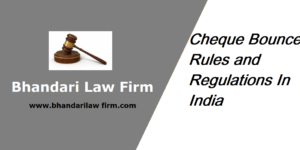MODES OF TRANSFER OF PROPERTY
The transfer of property act 1882 is an Indian legislation dealing with provision relating to transfer of property in India. It’s main arena is to define what constitutes property and the conditions thereof. So accordingly, the term ‘transfer of property’ may be defined as an act by which one party person conveys the property to one or more persons or to himself and one or more persons. Such transfer need not be necessarily a present transaction, it can be a future transaction as well. Moreover this act is not only extended to natural persons but also to artificial persons (juristic persons) like companies, association or body of individuals. The important consideration here is that what kind of properties are covered under transfer of property act 1882. There are two broad categories of property which is as under : Modes of Transfer of Property
Immovable property
In layman’s language, an immovable property is the one which can not be conveyed physically from one person to another. However if we study the provision of this act, section 3 defines immovable property as the one that excludes standing timbre, growing crops and grass. Further section 4 of this act also provides that immovable property includes land, benefits arising out of land and things permanently attached to earth.
Movable property
On the other hand , the term movable property is not defined anywhere in this act. The meaning of movable property is inferred section 3 of this act. According to this section, standing timbre, growing crops and grass constitutes immovable property. Similarly as per section 2 (9) of the Registration Act 1908 also provides that standing timbre, growing crops, grass, fruits on tress and property of every description except immovable property constitutes movable property. Broadly speaking, this act mainly deals with immovable property however there are some provisions dealing with movable properties. Now the important question that has to be answered is that property law deals with what kind of properties and what are the modes of transfer under this act. This act provides that there can be transfer of property via two means as under :
- By act of parties
- By operation of laws Modes of Transfer of Property
(Click Here To Know About Our Civil Practice)
This act does not apply in cases of transfer by operation of laws. Transfers by operation of laws are governed by personal laws for example. Hindu and Muslim laws of will and inheritance or by order of court under civil procedure code. To constitute a valid transfer under this act, certain conditions are to satisfied which are as under-
- It is rightly stipulated in section 5 of this act that “transfer of property means an act in which a living party conveys property, in present or in future, to one or more other living persons, or to himself, or to himself and one or more other living person.” The requirements of section 5 are to be satisfied in order to constitute a transfer under this act. Modes of Transfer of Property
- Requirements of section 6 as to what kind of properties can be transferred under this act has to be met.
- The various essentials of a valid transfer are to be satisfied as stipulated under section 7 of this act like the parties must be competent to contract, age of majority, soundness of mind, authority to transfer, no other disqualifications on the part of either of the parties, etc. Modes of Transfer of Property
After the satisfaction of the above requirement, either of the modes of transfer(section 9 of this act) may be adopted:
-
Delivery of possession Modes of Transfer of Property
-
Registration Modes of Transfer of Property
This act provides that where writing is not necessary under this act, the property may be transferred orally i.e. without writing any deed.
- Delivery of possession – wherever writing of any deed is not required under this act, such Property may be transferred orally which means transfer of property by delivery of possession. In case of movable property this mode of transfer is generally adopted and other kinds of properties like sale of immovable property valuing less than rupees 100 (except in U.P), month to month tenancy, mortgage by deposit of title deeds etc. So it can be concluded that wherever writing of deed is not required, the same can be effectuated through an oral transfer.
- Registration– whenever there is a need that the transfer must be in writing, then the registration of the same is necessary. This act mentions various transfers that can only be effected through a written deed like gift of an immovable property, sale of an immovable property exceeding more than 100 rupees in value, sale of reversion irrespective of it value, leases from year to year, simple mortgage irrespective of the amount secured etc. So in all these cases oral transfer can’t be effected. In such cases a written deed is necessary and where ever a written deed is necessary the registration of the same becomes mandatory. The method and the procedure of registration of documents and transfers are governed by the registration act 1908. And if such Properties are transferred without registration, the transaction is held to be null and void.
While particularly discussing the transfer of immovable properties, it has to be noted that it may happen in certain ways only. The various ways or modes of transfer of immovable property are :
Sale – Section 54:- this is the first mode of transfer of property. It includes entering of a sale contract between two parties. Under this contract the various conditions of a valid contract as stipulated in section 2 of the indian contract act has to be compiled with. Moreover if the property values less than rupees 100 then Registration is not mandatory however registration is necessary for all those properties to be transferred that cost more than rupees 100 under the registration act 1908
Mortgage –Section 58:- transfer of immovable property can also take place by means of mortgage under section 58 (a) of transfer of property act. Under this, the mortgagor transfers any of his interest in the specific immovable property to the mortgagee. This is done in order get a loan advanced in the favour of mortgagor. Out of this loan a future liability arises and if the mortgager fails to repay the loan amount then the property kept as security with the mortgagee is transferred to him only.
Charge –Section 100: a charge is another mode of transfer of immovable property. This is given under section 100 of the transfer of property act. A charge is an act by one person to create a security for payment of money to another person and the transaction should not be a mortgage, the latter is said to have a charge on the property. For example: A inherits certain properties from his grandmother. He executes an instrument in which he agreed to pay a certain sum of money every year to his sister B out of the rents and profits of the inherited property. Charge by act of parties is created in favour of B.
The charge can also be created by way off operation of laws. For example: A who is a co-sharer, pays the entire arrears of rent as required under some provisions of law. A has a charge by operation of law, on the other co-sharer’s portion of property.
Lease – section 105 of the transfer of property act defines lease as an act of transfer of Right to enjoyment of an immovable property made for a certain period, in consideration of a price paid or promised to be paid or money, share of crops, service or any other thing of value to be given periodically or on specified occasions to the transferor(lessor) by the transferee(lessee).
Immovable property may also transferred by means of exchange, gifts and actionable claims.
Immovable property can also be transferred by operation of laws but it not the subject matter of the transfer of property act of India.
CONCLUSION- Before the transfer of any property if effected if has to be taken into consideration that what kind of properties are transferable. Section 6 of this act explains all those properties which can’t be transferred like right of re-entry, spes-successionis, future maintenance, transfer opposed to nature of interest, etc. This can be inferred from various case laws such as In one of case law it was held that the appellant purchased the rights expectant upon the termination of the surviving widow’s rights from the respondents and further on there was a compromise between the widow and the respondents as a result of which the respondents got certain properties. Thus it was held in the case that compromise is void and cannot be transferred. Similarly in another case Charge cannot be transferred because it is a right, which is a part of the property. Compromise cannot be transferred. Easement cannot be transferred because these are the rights or interest arising of land, which is a part of the property but cannot be transferred. Family arrangement may be transferred. A will cannot be transferred because it does not operate by the act of parties. Auction sale cannot be transferred because property is in possession of another. Therefore it is concluded that before considering the question of mode of transfer , it as to be first ascertained that what kind of properties can be transferred. If the property is a transferable property the same can be transferred via using different modes of transfers as discussed above.
Note: For any further information or any query you may contact us on 9855677966 or via email info@bhandarilawfirm.com



